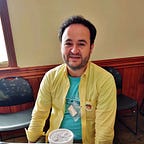The complete songwriting list of ‘Wichita Lineman’ Glen Campbell
A 55-year recording session cat posthumously nominated in 2017 for a Grammy Award for Best American Roots Performance for the autobiographical “Arkansas Farmboy” off the Carl Jackson-produced Adiós, proud Arkansan Glen Campbell was 24 years old when he pulled up stakes for the City of Angels after playing in his uncle’s outfit the Dick Bills Band and fronting the Western Wranglers in low-paying dive bar gigs around the Southwest. Scoring a songwriting deal with American Music Publishing and co-writing his debut Billboard charting single — “Turn Around, Look at Me” — by July 1961 he was harmonizing on Rick Nelson hit singles like “Everlovin’”, “A Wonder like You,” “Young World,” and “It’s Up to You.” Campbell eventually contributed rhythm guitar alongside Master of Telecaster James Burton to scores of Nelson recording sessions over the next six years.
Campbell’s stature rose among L.A. insiders when he joined the illustrious ranks of the Wrecking Crew in the mid-’60s, cutting Elvis Presley’s ”What’d I Say” for the Viva Las Vegas soundtrack, the Beach Boys’ Pet Sounds, Frank Sinatra’s “Strangers in the Night,” and the Monkees’ “Mary, Mary” among bucket loads of other ubiquitous ’60s AM radio hits.
After Brian Wilson endured a nervous breakdown and refocused his energy on studio production, Campbell replaced him…
